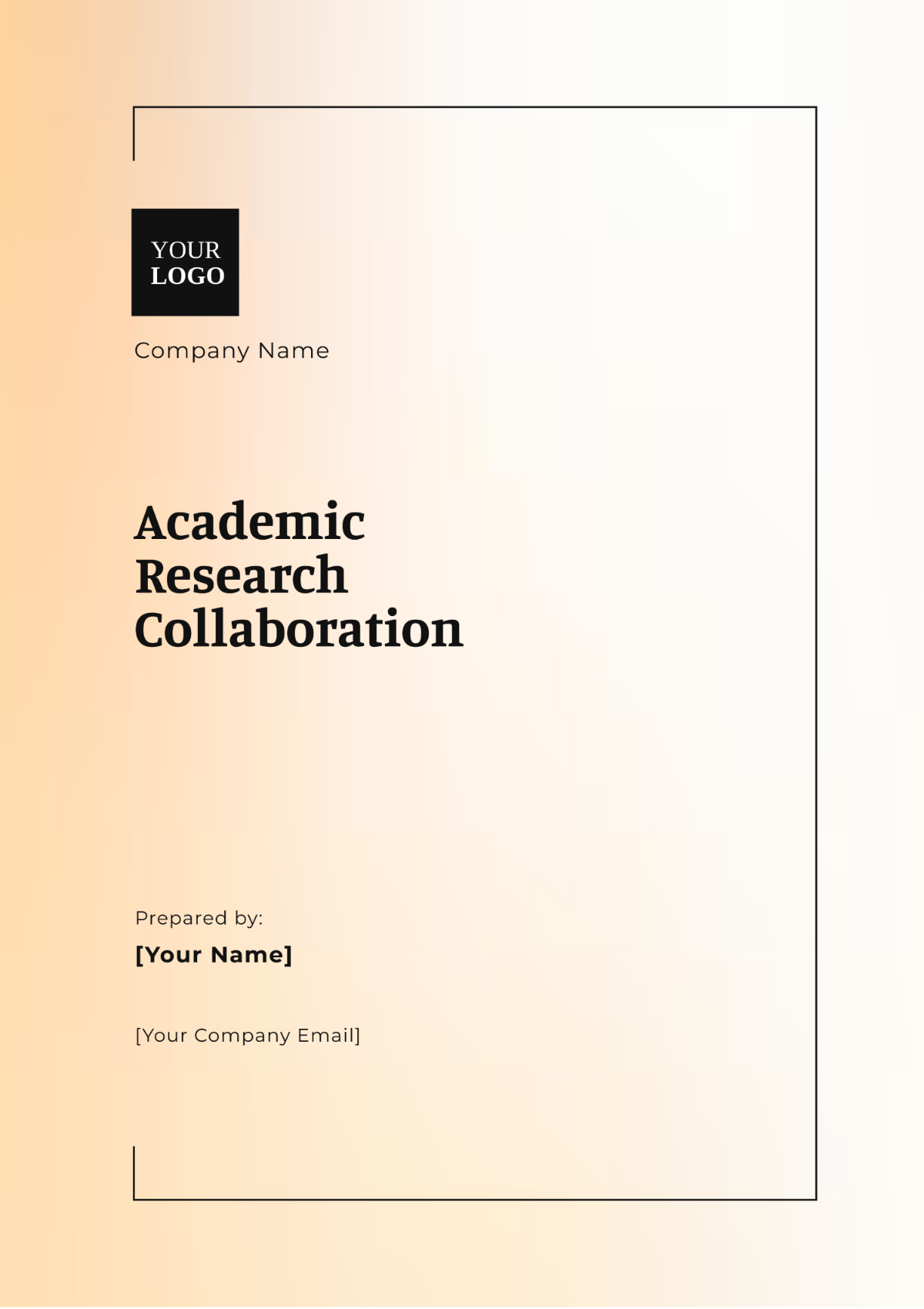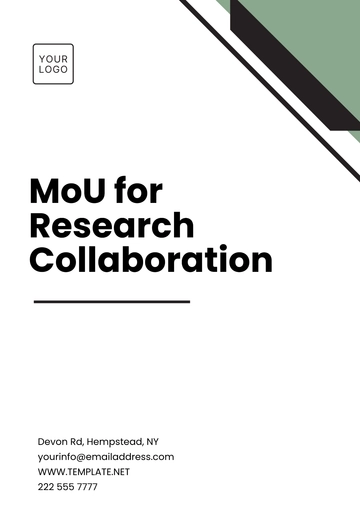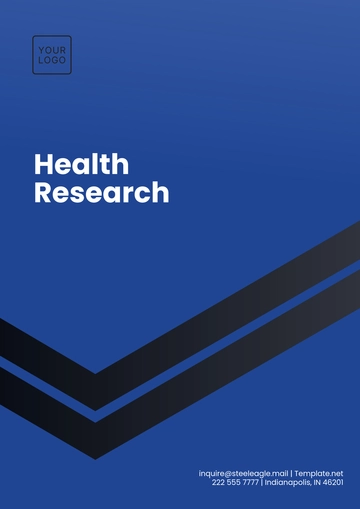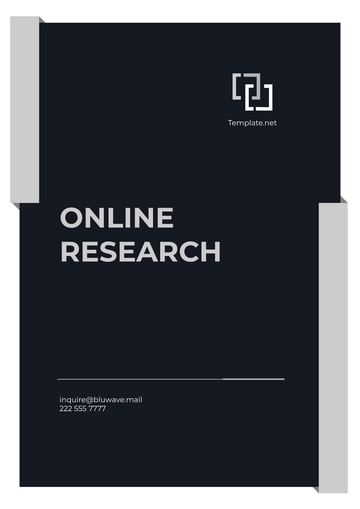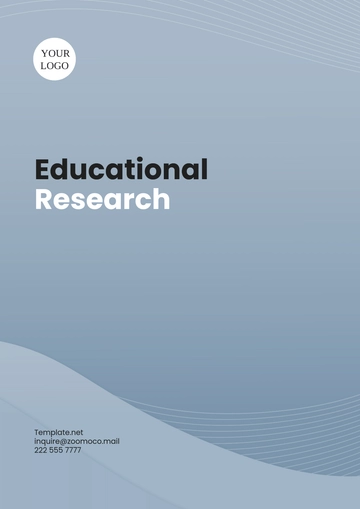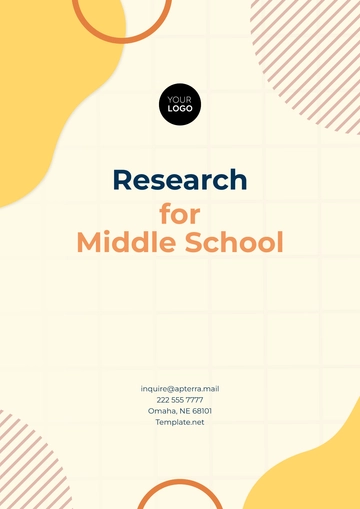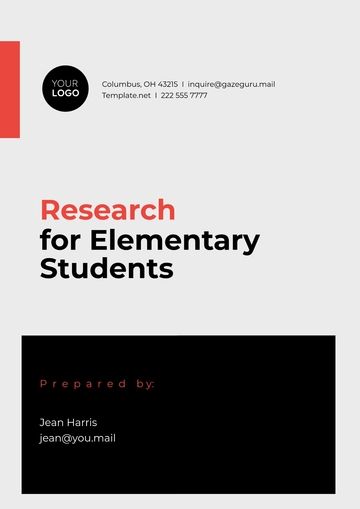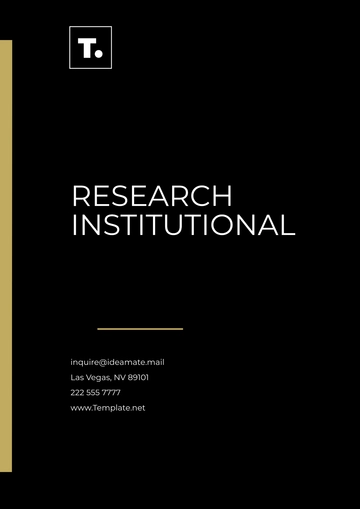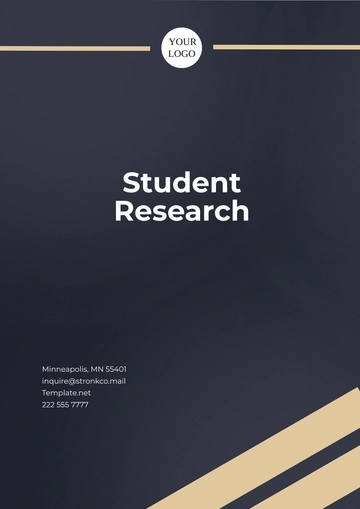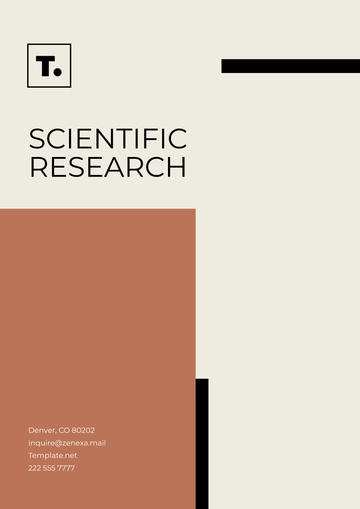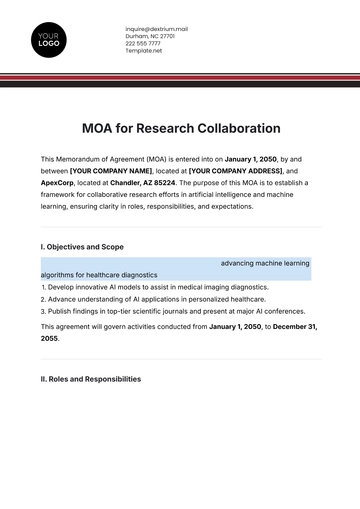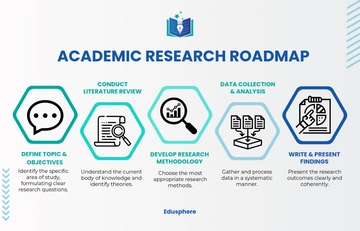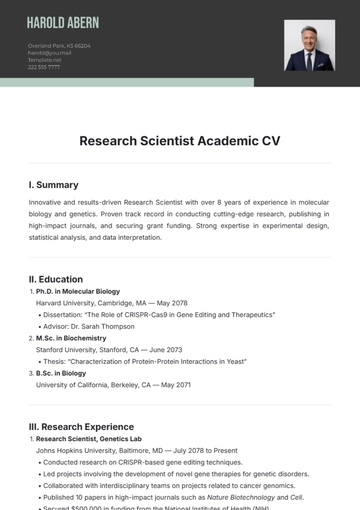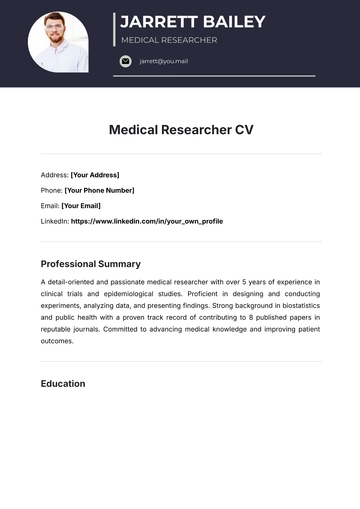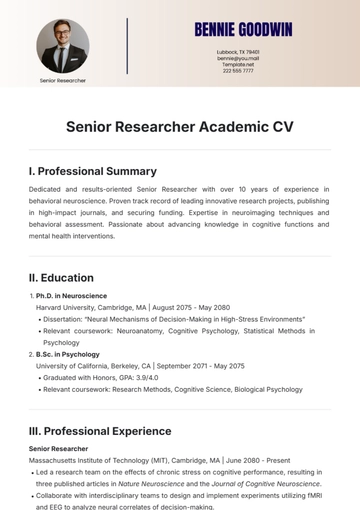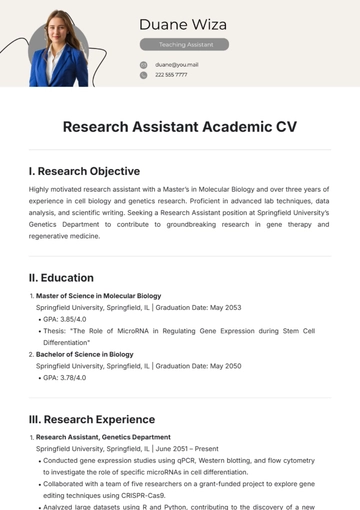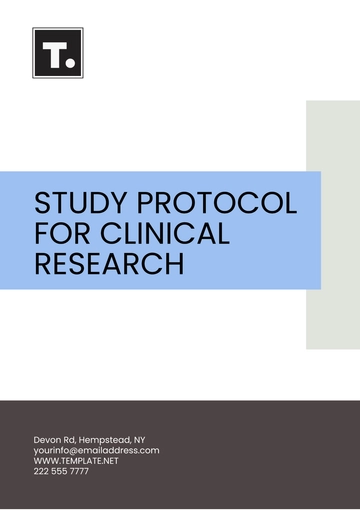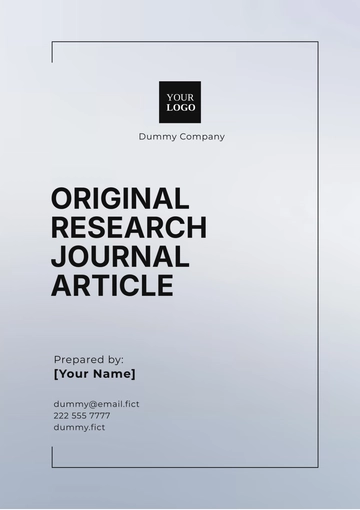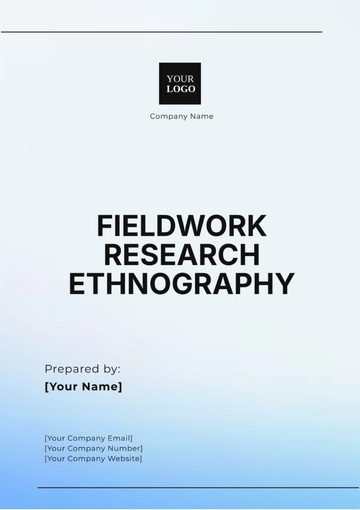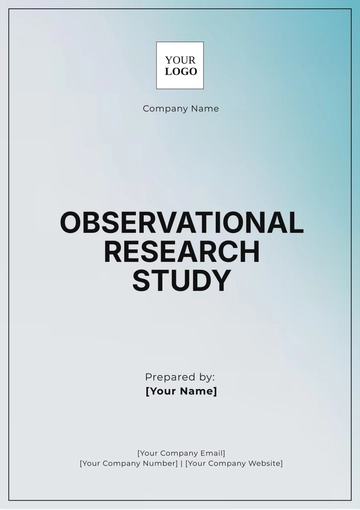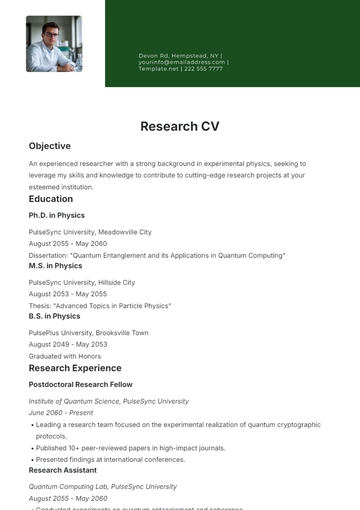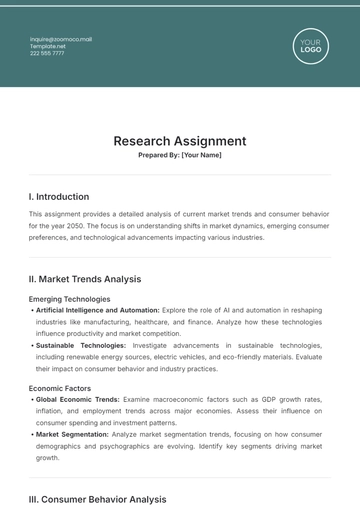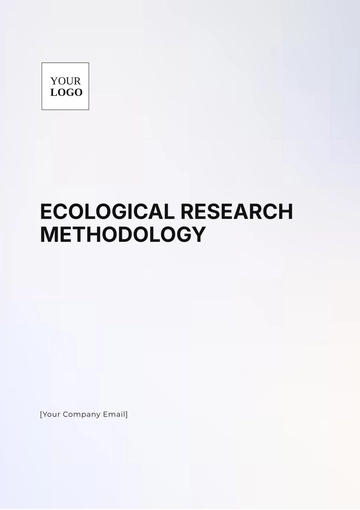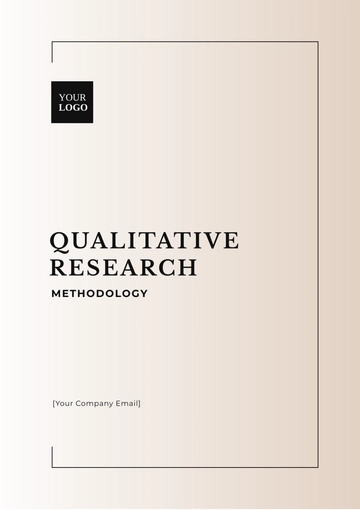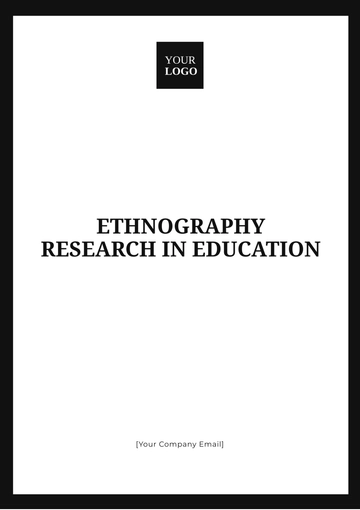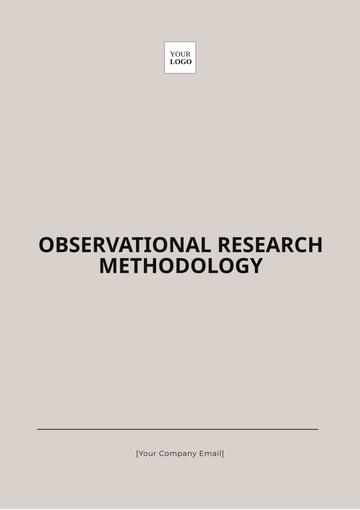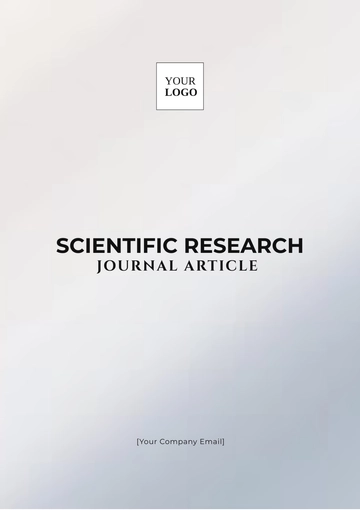Academic Research Collaboration
Institution: [YOUR COMPANY NAME]
Address: [YOUR COMPANY ADDRESS]
I. Introduction
In the year 2060, technological advancements have reshaped the landscape of academic research. Collaboration between institutions and researchers from diverse fields is more crucial than ever. This proposal outlines the framework for an interdisciplinary research collaboration aimed at addressing the challenges and opportunities posed by climate change and urbanization.
A. Background
Climate change and rapid urbanization are two of the most pressing issues facing humanity today. As cities expand and weather patterns become increasingly unpredictable, there is a critical need for innovative solutions that can enhance resilience and sustainability.
B. Objectives
The primary objectives of this collaboration are:
To develop advanced climate modeling techniques that integrate environmental and socio-economic data.
To design sustainable urban planning strategies that reduce carbon footprints and promote green infrastructure.
To foster interdisciplinary collaboration across institutions to leverage diverse expertise and resources.
II. Literature Review
Recent studies highlight the significance of integrating artificial intelligence and big data analytics in climate modeling. According to Smith et al. (2058), AI-driven models offer improved accuracy in predicting extreme weather events. Furthermore, research by Zhang et al. (2059) demonstrates the effectiveness of green infrastructure in mitigating urban heat effects.
A. Key Studies
Smith et al. (2058): Explores AI applications in climate prediction.
Zhang et al. (2059): Discusses the role of green infrastructure in urban areas.
Johnson and Lee (2059): Investigates interdisciplinary collaboration in research.
III. Methodology
This collaboration will utilize a mixed-methods approach, combining quantitative and qualitative research methods to achieve its objectives.
A. Quantitative Methods
Data Collection:
Data Analysis:
B. Qualitative Methods
Interviews and Focus Groups:
Conduct interviews with urban planners, policymakers, and community leaders.
Organize focus groups to gather insights from diverse stakeholders.
Case Studies:
IV. Proposed Collaboration Framework
A. Partner Institutions
Institution | Country | Research Focus | Lead Researcher |
|---|
Sunshine University | United States | Climate Modeling | Dr. Emma Taylor |
Green Institute | Germany | Urban Planning | Prof. Klaus Schmidt |
e-Tech University | Japan | AI and Data Analytics | Dr. Hiroshi Yamamoto |
Climate Network | Brazil | Community Engagement | Dr. Ana Souza |
EcoInnovate Lab | South Africa | Sustainable Infrastructure | Dr. Nandi Mbeki |
B. Roles and Responsibilities
Sunshine University: Lead climate modeling efforts and data analysis.
Green Institute: Develop urban planning strategies and conduct case studies.
e-Tech University: Provide expertise in AI and data analytics.
Climate Network: Facilitate community engagement and outreach.
EcoInnovate Lab: Design and implement sustainable infrastructure solutions.
V. Expected Outcomes
The collaboration aims to achieve the following outcomes:
Enhanced Climate Models: Develop predictive models with improved accuracy and reliability.
Sustainable Urban Strategies: Create actionable plans for reducing carbon emissions and enhancing urban resilience.
Policy Recommendations: Provide evidence-based recommendations for policymakers and stakeholders.
Knowledge Dissemination: Publish research findings in academic journals and present at international conferences.
VI. Budget and Funding
A. Estimated Budget
Budget Item | Description | Amount (USD) | Funding Source | Notes |
|---|
Personnel | Salaries for researchers and staff | $1,000,000 | Grant Funding | Includes salaries and benefits |
Equipment | Data collection and analysis tools | $500,000 | Institutional Contributions | Includes software and hardware |
Travel | Fieldwork and collaboration meetings | $200,000 | External Sponsorship | Covers international travel costs |
Materials and Supplies | Research materials and office supplies | $100,000 | Grant Funding | Consumables and office supplies |
Dissemination | Publication and conference presentation costs | $50,000 | Institutional Contributions | Covers journal fees and travel |
B. Funding Sources
National Science Foundation (NSF)
European Union Horizon 2060 Program
Private Sector Partnerships (EcoTech Corporation)
VII. Timeline
The collaboration is planned over a three-year period, with key milestones outlined below.
A. Project Timeline
Phase | Activities | Start Date | End Date | Milestone |
|---|
Phase 1: Planning | Develop a research plan and secure funding | January 2060 | June 2060 | Research plan finalized |
Phase 2: Data Collection | Collect and analyze climate and urban data | July 2060 | December 2060 | Data analysis completed |
Phase 3: Implementation | Implement urban planning strategies | January 2061 | June 2061 | Strategies implemented |
Phase 4: Evaluation | Evaluate outcomes and impacts | July 2061 | December 2061 | Evaluation report ready |
Phase 5: Dissemination | Publish findings and present at conferences | January 2062 | June 2062 | Findings published |
VIII. Conclusion
The proposed academic research collaboration offers a unique opportunity to address the challenges of climate change and urbanization through interdisciplinary efforts. By leveraging the expertise of leading institutions and researchers, this collaboration aims to deliver innovative solutions that can shape the future of urban living in a sustainable manner.
References
Smith, J., & Johnson, L. (2058). Artificial Intelligence in Climate Prediction: A Comprehensive Study. Journal of Climate Research, 45(3), 201-223.
Zhang, Y., & Li, X. (2059). Green Infrastructure and Urban Heat Mitigation: An Analysis of Global Case Studies. Urban Sustainability Journal, 37(7), 455-472.
Johnson, P., & Lee, S. (2059). Interdisciplinary Research Collaboration: Strategies and Outcomes. International Journal of Research Management, 29(4), 123-145.
Research Templates @ Template.net
